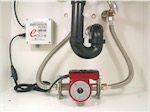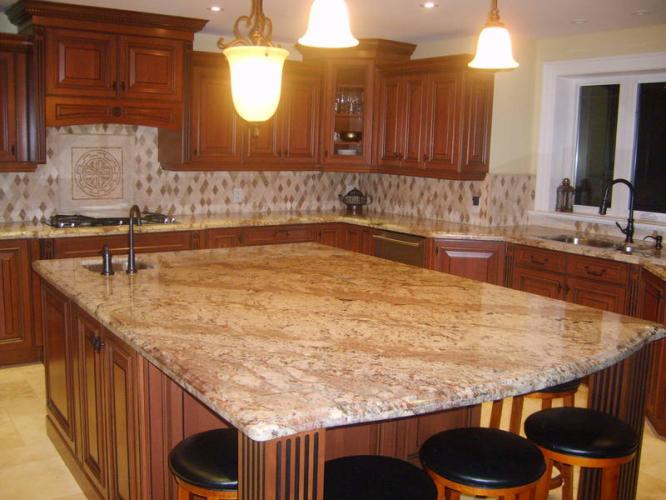Equipment performance, proper sizing to ensure comfort.
 by furee » Mon Jul 05, 2010 9:37 pm by furee » Mon Jul 05, 2010 9:37 pm
Our 30 years old air conditioner stopped working. I am thinking to get a more energy efficient one. I had three heating and cooling guys came to give me estimates. They said they would replace it with the same size of air conditioners for me. One guy said that the rule of thumb is 500 sq ft per ton. Is there such a rule of thumb or is there a better way to calculate it?
-
furee
-
- Posts: 10
- Joined: Mon Jul 05, 2010 9:23 pm
 by eins » Sat Jul 24, 2010 3:33 pm by eins » Sat Jul 24, 2010 3:33 pm
Many contractors use the rule of thumb 500 square feet per ton is not always accurate. The best way to size your heating and cooling system is to use ACCA (Air Conditioning Contractors of America) Manual J calculation. It involves things like orientaion of the windows and doors, size of the windows, single or double panes, size of the rooms, height of ceilings, how much insulation, quality of insulation, etc. There are softwares out there to do this kind of calculatin for you, but they can be expensive. It is better to hire a contractor and insist using Manual J calculation.
-
eins
-
- Posts: 14
- Joined: Sat Jul 24, 2010 3:31 pm
 by LindseyW » Wed Sep 14, 2011 1:29 pm by LindseyW » Wed Sep 14, 2011 1:29 pm
Did all three HVAC people use the 500 sq.ft.=1 ton calculation? Did your previous air conditioner adequately cool your home or was it always running and not doing a good job during the hotter days? If it was struggling to keep the home cool, you may want to step up to a larger unit or check your in case they are clogged.
-
LindseyW
-
- Posts: 5
- Joined: Wed Sep 14, 2011 1:12 pm
 by marygrace » Mon Jun 04, 2012 8:19 am by marygrace » Mon Jun 04, 2012 8:19 am
My suggestion is it's better if you are going to ask a technician in your place so that the measure would be accurate. There are some instances that you measure it through the regular tape measure or something but there are still a big difference if you brought that to the store and measure again the air conditioning.
-
marygrace
-
- Posts: 2
- Joined: Fri May 25, 2012 7:35 am
 by moshei » Thu Sep 06, 2012 1:47 am by moshei » Thu Sep 06, 2012 1:47 am
Ask the technician for the proper measurement to prevent from any disadvantages that will occur in order to make some changes on it.
-
moshei
-
- Posts: 34
- Joined: Fri Aug 31, 2012 5:35 am
 by Stanleys » Mon Oct 15, 2012 4:10 am by Stanleys » Mon Oct 15, 2012 4:10 am
Try to contact the technician to get a proper measurement on it and will not get much materials.
-
Stanleys
-
- Posts: 49
- Joined: Fri Oct 12, 2012 2:40 am
 by jacklance » Tue Oct 23, 2012 1:14 am by jacklance » Tue Oct 23, 2012 1:14 am
You have to look in ASHRAE for more exact numbers but id say about 20,000 BTU's for a 1000 square foot apartment.The Size is not the only consideration. There are many contributing factors. One of the largest contributing factor is based on where you live. An AC in florida will probably be larger than if you lived in Maine. I would say if you have the money get a unit that can handle the hottest day of the year. Chances are youll never have to jack your AC up to full but its nice to know that you have to option if needed.
-
jacklance
-
- Posts: 2
- Joined: Tue Oct 23, 2012 1:02 am
- Location: Clifton, NJ
-
 by Melanie » Mon Dec 03, 2012 2:50 pm by Melanie » Mon Dec 03, 2012 2:50 pm
Good point from Lindsey on secondary issues and advice, with regards to the air filters. Not just the main one around the unit, but also having a technician look at the quality of your home's air vents, whether the air circulation is as optimal as can be, etc.
As for determining the size of the A/C, the 500 sq ft rule does apply, but the architecture of the home, for instance, having higher than normal ceilings in the main living room and/or other key parts of the home, should be a factor as well.
-
Melanie
-
- Posts: 1
- Joined: Mon Dec 03, 2012 2:18 pm
-
 by classg » Thu Jun 05, 2014 2:15 pm by classg » Thu Jun 05, 2014 2:15 pm
Before buying consult air conditioner technician to get proper advice on measurement to avoid any problem afterwards.
-
classg
-
- Posts: 11
- Joined: Fri Apr 25, 2014 2:07 am
-
 by Jane » Wed Aug 06, 2014 4:18 pm by Jane » Wed Aug 06, 2014 4:18 pm
I had a couple of heating and cooling contractors over my house for a new furnace and air conditioner. The first one came in and took a look at the existing furnace and said he would replace the same size of furnace and A/C as we have. He gave me a quote and left. The second one came and took a look at the furnace, measured the furnace's width and height. Then walked around the house and sat down at the kitchen table and wrote up a quote and left. They did not ask me whether I made any changes to my house or if I have one room is colder than the others. It seems to me they just want to replace my system and don't care if the existing system is making me comfortable.
-
Jane
-
- Posts: 33
- Joined: Sun May 30, 2010 12:36 pm
Return to Heating, Cooling and Ventilation
Who is online
Users browsing this forum: No registered users and 1 guest

|
|







